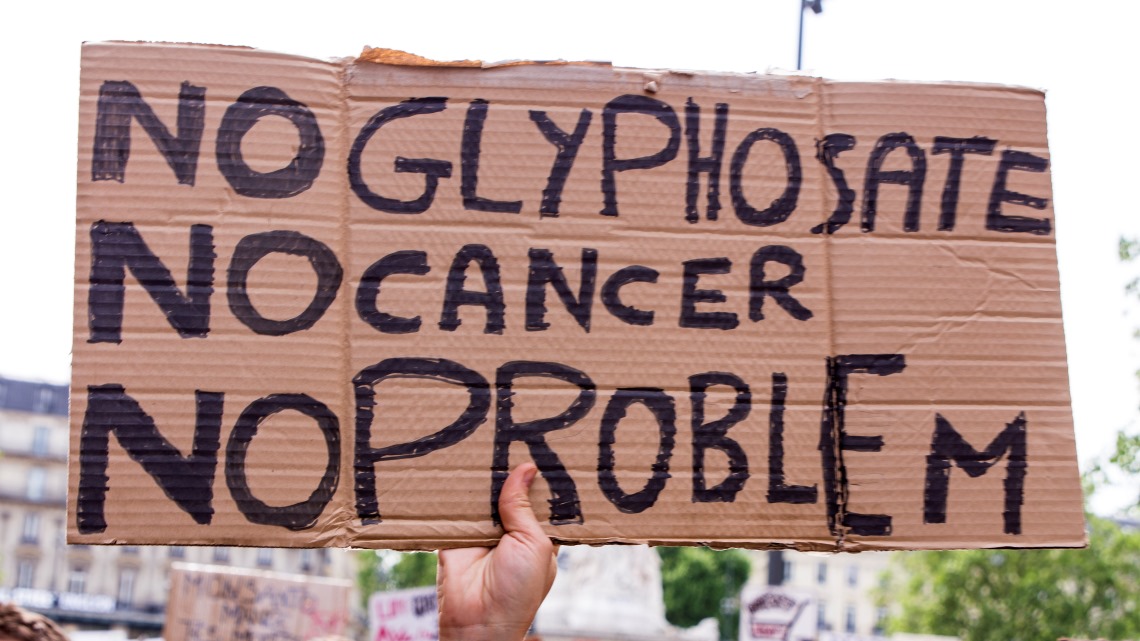Analysis
European regulators err on the side of business with glyphosate decision
The European Chemicals Agency concluded glyphosate does not cause cancer, even though a variety of studies have suggested it might. “ECHA has done a great job sweeping under the carpet the evidence that glyphosate could cause cancer.”

The European Chemicals Agency (ECHA), in clear contradiction with reports by the World Health Organization (WHO), announced Wednesday that it will not classify glyphosate as a potential carcinogen. Glyphosate is the active ingredient in the mostly widely used herbicides in the world (every year 800,000 tons end up in fields and gardens) produced by Monsanto and other global agrochemical giants.
The International Agency for Research on Cancer (IARC) had shown an increase in incidence of tumors in two studies involving laboratory mice.
Some of the members of the ECHA expert committee have worked for chemical companies, causing dozens of European environmental groups to complain of a blatant conflict of interest. Nevertheless, the committee admitted that the substance could cause serious eye damage and be toxic to aquatic life with long lasting effects. Wednesday’s opinion is not binding, but it will certainly influence the European Commission’s decision later this year on whether to authorize the use of glyphosate for another 15 years. The European Commission will consider ECHA’s report this summer.
Beyond the scientific controversy, the question has already become political. In just five weeks, nearly half a million European citizens signed a petition calling for the prohibition of glyphosate and to reform the ambiguous process for pesticide approval.
Greenpeace says ECHA ignored scientific evidence. According to the environmental organization, the carcinogenicity of glyphosate was proven in laboratory tests and has been confirmed by more than 90 independent scientists. In addition, the assessment of ECHA’s experts was based on studies commissioned by the producers of the herbicide, which have not been made public.
“ECHA has done a great job sweeping under the carpet the evidence that glyphosate could cause cancer,” said Federica Ferrario, campaign manager of Greenpeace Sustainable Agriculture. ”The available data is more than enough to ban glyphosate as a precaution, but ECHA has preferred to look elsewhere.”
Pressure at the international level will continue, but ultimately the individual countries will have to decide. ”Now, it is up to Italy to remove glyphosate immediately from our fields and begin the disciplinary agronomic integrated production,” Ferrario said. “People and the environment cannot become laboratory mice for the chemical industry.”
Currently in Italy, based on the recommendation of the Health Ministry, the use of the herbicide is banned in parks and gardens, children’s play areas and near schools and hospitals. Mirko Busto, a 5 Star Movement MP on the Environment Committee, and Eleonora Evi, his colleague in the European Parliament, issued a joint statement questioning whether the Italian government planned to “defend the interests” of Italians or the chemical lobby.
“This is a controversial verdict that reeks of conflict of interest, since it is based on a dossier issued by the German Federal Institute for Risk Assessment (Bfr) prepared by the glyphosate task force,” they wrote. “This is a group formed by the pesticide producers, according to an investigation of the German weekly Die Zeit.”
Gaetano Pascale, president of Slow Food Italy, expressed his doubts and suspicions. “Frankly, we would have preferred that the experts would take more time to evaluate every aspect of the issue, especially in light of the many conflicting scientific opinions,” he said. ”We are worried that the Committee for Risk Assessment issued its opinion now to hasten the renewal of the use of glyphosate.”
Pascale also underlined the fact that ECHA’s opinion will not be focused only on the alleged carcinogenicity: “Actually, the same experts confirmed other toxicity profiles of this substance, which should lead to a principle of precaution.”
It seems that other principles inspire Richard Garnett, president of the European glyphosate Task Force (the name says it all): “The scientific evidence in support of glyphosate are obvious,” he said. “There are no obstacles to the renewal of glyphosate in Europe by the member states.” Local companies supporting glyphosate also showed satisfaction. For Agrofarma, “the product can definitely be considered safe for use according to the directions for use included in the approved labeling.”
Originally published at https://ilmanifesto.it/secondo-lagenzia-europea-per-le-sostanze-chimiche-echa-il-glifosato-non-e-cancerogeno/ on 2017-03-16
